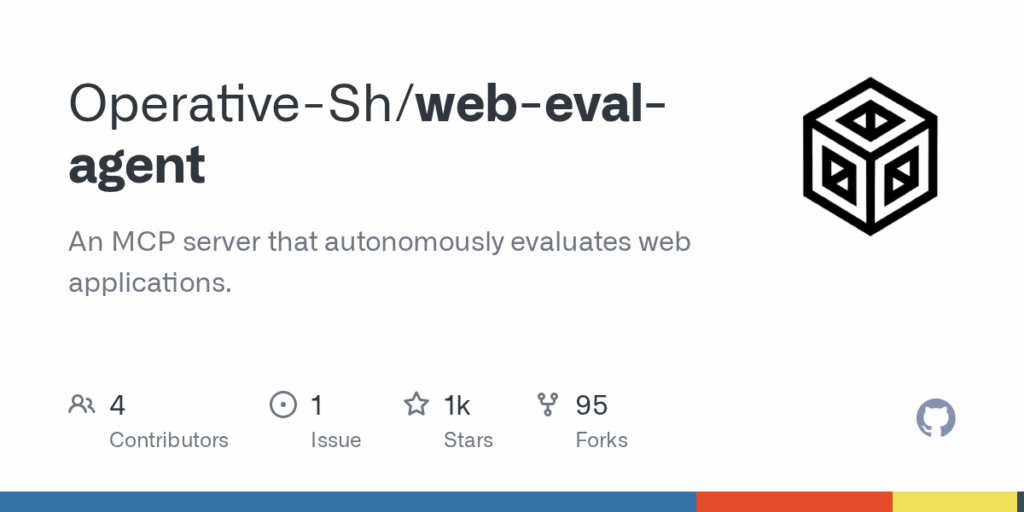web eval agent
Basic Information
This repository provides an MCP server implementation named web-eval-agent that launches a browser-driven automated agent to execute and debug web applications from within a developer's code editor. It is built to integrate with the operative.sh MCP system and editor integrations such as Cursor, Cline, and Windsurf so an agent can be invoked from an IDE chat to run natural-language test tasks against a running web app. The agent drives a browser (interactive or headless), captures screenshots, console logs, and network traffic, and returns a structured UX evaluation report and chronological timeline. The package includes tools to set up persistent browser state for single-sign-on reuse and to run autonomous end-to-end UX checks without manual step-by-step testing. Installation and update instructions target developers on macOS, Linux, and Windows who want automated in-editor web app QA.








